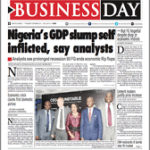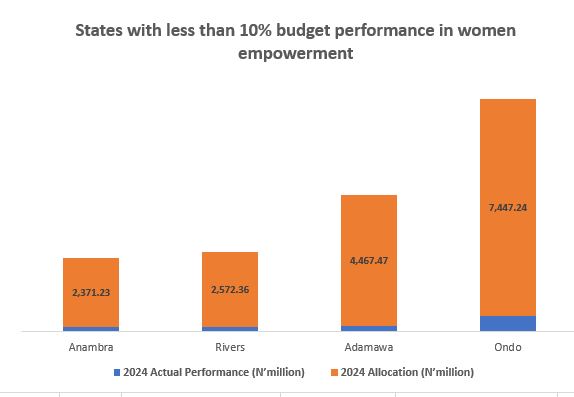Nigeria’s ongoing economic meltdown would not have been as deep or prolonged if not for self inflicted wounds that worsened a bad but manageable slump in crude prices.
The stubborn adoption of an outdated but capital inflows-repelling currency peg by Nigeria’s President Muhammadu Buhari, ineffective responses to bombing campaigns on oil infrastructure by the self styled Niger Delta Avengers, and an insistence on price caps on domestic petrol prices which led to shortages nationwide, all contributed to deepening the recession.
Add to that, the passage of the President’s only economic bill, his 2016 budget, five months into the year, lack of effective communication by ministers on the country’s economic plan, veiled threats and hostility to the private sector, the Nigerian economy had nowhere to go but down.
The scary prognosis from analysts is that it could get worse unless the Federal Government ends its economic flip flops and embraces a market driven, private sector led jobs and growth agenda.
“The method of thinking in Nigeria is quite similar to what was obtainable in the Soviet Union. If it did not work in the defunct Soviet Union, it won’t work in Nigeria. Policy makers need to focus more on letting market forces play out, or risk a prolonged recession,” said Mark Bohlund, an Africa and Middle East economist at Bloomberg intelligence, at a conference in Lagos.
Nigeria is officially in recession as its economy slumped 2.06 percent in the second quarter (Q2) of 2016 after 0.4 percent contraction in the first quarter, the National Bureau of Statistics (NBS) said yesterday.
Bombing of oil infrastructure in the Niger Delta cut output and led to a 17.48 percent contraction in oil GDP, while the fixed exchange rate regime in place for more than a year, hurt the manufacturing sector which contracted by negative 3.36 percent.
Both sectors (Manufacturing and Oil and Gas) combined, make up about 17.68 percent of Nigeria’s economic output.
Oil production for the second quarter was estimated at 1.69 million barrels per day (mbpd), 420, 000 barrels per day lower from production in First Quarter of 2016.
“I’m not sure we have seen the worst of the economic crisis yet. Although the volatility in GDP growth contraction is narrow, economic outlook is bleak. It is difficult to point at any positive element that can deliver growth,” said Ogho Okiti, an economist and CEO of consulting firm, Time Economics.
The trajectory for oil production has continued to fall, as attacks by militants intensify.
Such attacks on oil and gas facilities in the Niger Delta have cut crude production by about 700,000 barrels per day (bpd) to 1.56 million bpd.
The government’s 2016 budget assumed 2.2 million bpd in output.
Falling oil output has reduced the dollars available for firms in the country to import raw materials, leading to a spike in productions costs.
Annual inflation reached 17.1 percent in July from 16.5 percent in June – a more than 10-year high – while unemployment accelerated to 13.3 percent in the second quarter of 2016.
The NBS report said manufacturers were negatively hit by higher operating cost related to high costs of inputs.
The poor management of the FX market has also taken a heavy toll on the sector, shutting down 54 companies, according to Frank Udemba Jacobs, president, Manufacturers association of Nigeria (MAN).
Jacobs told BusinessDay in a telephone interview that power sector woes and the issue of 41 items excluded from the FX market need be addressed if Nigeria is to diversify its economy through the real sector.
Musa Yusuf, director-general, Lagos Chamber of Commerce and Industry (LCCI), said news of recession did not come as a surprise.
“It’s something that was already evident, even before the announcement,” Yusuf said.
“The situation is getting worse, showing that we need investments to revive the economy.”
According to him, the country needs private and public spending. He adds that the Federal Government needs to have deployed its stimulus package by now.
“You need to regain the confidence of investors, both portfolio and FDI. These investors want policies that are stable and credible. Again, we need to unlock opportunities for investments in various sectors,” he noted.
Yusuf further said the FX market should be properly fine-tuned to aid inflow of funds, stressing that government should embrace dialogue in the Niger Delta to ensure stability in the region.
The NBS said in a separate report released yesterday, that Nigeria attracted just $647.1 million of capital in the second quarter, a 76 percent fall year-on-year and 8.98 percent down from $710 million in the first quarter.
Nigeria’s economy was last in recession, for less than a year, in 1991, NBS data shows. It also experienced a prolonged recession from 1982 until 1984 corresponding to the period President Buhari was last in power.
The naira remained at a record low of 418 per dollar, hit on Tuesday on the black market, as dollar shortages curb activity on the official interbank market where the currency was offered at N318 per dollar.
“Nigeria is a country at war with itself,” Charles Chukwuma Soludo, an economist and former CBN Governor said at the weekend, at a conference in oil producing Delta Sate, where most of the attacks on oil infrastructure have occurred.
“Oil cannot be the way of the future for Nigeria. The commodity super-cycle is over and depressed commodity prices will be with us for an extended period of time. Nigeria must begin to move to a post oil economy,” Soludo said.
PATRICK ATUANYA, ODINAKA ANUDU & LOLADE AKINMURELE










